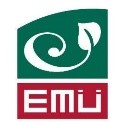Open Science Conference ‘Socio-ecological resilience across Eurasia: innovation for sustainability transition’ will take place in Hanoi, Vietnam, on 16-18 April 2020 (POSTPONED).
A conference will take stock of socio-ecological resilience across Eurasia, with a particular focus on transfer and applicability of environmental policy, management and technology innovation for sustainability transition.
The conference is organised by School of Environmental Science and Technology, Hanoi University of Sciences and Technology, Vietnam under the project Erasmus+ CBHE INTENSE – Integrated Doctoral Program for Environmental Policy, Management and Technology (http://intense.network/) in cooperation with Estonian University of Life Sciences and Ho Chi Minh City University for Natural Resources and Environment.
The latest conference updates, abstract submission and registration procedures are available from the conference web site.
![]()



Background and objectives
In recent years, the notion of socio-ecological resilience has grown into an important concept for both scholars and practitioners working on disasters. This evolution reflects a growing interest from diverse disciplines in a holistic understanding of complex systems, including how societies interact with their environment.
Scholars from a variety of disciplines have developed resilience frameworks both to guide macro-level policy decisions about where to invest in preparedness and to measure which systems perform best in limiting losses from disasters and ensuring rapid recovery. Yet there are competing conceptions of what resilience encompasses and how best to measure it. While many efforts have been made on resilience, the lack of a shared understanding of its conceptual boundaries and means of measurement make it difficult to demonstrate the results or impact of resilience programs.
The goal of the conference is to support socio-ecological resilience in terms of innovation for sustainability transition through the promotion of European expertise in the development and implementation of environmental policy, management and technology innovation. More specifically, the conference addresses the following areas:
- Social resilience to climate changes
- Indicators for assessing social-ecological resilience
- Policy innovation
- Management innovation
- Technology innovation
- Other topics relevant to socio-ecological sustainability within the regional focus of the conference.
Keynote speakers
Raimonds Ernšteins (University of Latvia), Ruben Mnatsakanian (Central European University, Austria/Hungary), Hans-Peter Nachtnebel (University of Natural Resources and Life Sciences, Austria), Altansukh Ochir (National University of Mongolia), Kalev Sepp (Estonian University of Life Sciences, Estonia), Nguyen Thi Van Ha Ho Chi Minh City University for Natural Resources and Environment, Vietnam), Nghiem Trung Dung (Hanoi University of Science and Technology, Vietnam) and Nguyen Thi Anh Tuyet (Hanoi University of Science and Technology, Vietnam)
Call for Sessions & Papers
We are calling for paper proposals addressing the conference theme, where relevant, in a broader international context, or based on local case studies.
We welcome proposals for individual paper presentations which will be clustered in sessions of related research questions by the conference organization. Proposals with an abstract of max. 400 words can be submitted via the online submission system available from the site.
The call for sessions and papers is open until March 12, 2020. All submissions will be reviewed by the conference organizers. The decision on acceptance will be communicated by March 15, 2020.
Practical Information
The conference registration fee is EUR 50 for the participants coming from OECD countries, and free for the participants from non-OECD countries. The registration fee includes the conference program and access to conference e-materials, access to all the sessions and coffee breaks. Conference excursions and the conference dinner will be charged extra.
Participants will have to cover their own travel and accommodation costs.
The conference venue is the Hanoi University of Science and Technology, No. 1 Dai Co Viet road, Hanoi, Vietam.
Logistics is available at Supported information.
Hanoi, the thousand-year-old cultural capital of Vietnam, is the centre of culture and politics of the country with preferential natural landscapes as well as the historical monuments, the intangible cultural heritage such as Ca Tru singing, etc. All of them have created the unique attraction of Hanoi. Since the country innovation, Hanoi tourism has been increasingly developed with many different types of tourism. Hanoi tourism is supported by high quality infrastructure, diversity of hotels from 2 stars to 5 stars, restaurant systems with Asia and Western dishes, etc. Hanoi is the transhipment of international tourists coming to Vietnam. The number of international as well as domestic tourists visiting Hanoi annually increases.
Conference Steering & Organising Committee
Nghiem Trung Dung, Hanoi University of Science and Technology, Vietnam; Nguyen Thi Anh Tuyet, Hanoi University of Science and Technology, Vietnam; Nguyen Thị Van Ha, Ho Chi Minh City University for Natural Resources and Environment, Vietnam; Kalev Sepp, Estonian University of Life Sciences (the conference co-chair); Raimonds Ernšteins, University of Latvia, Latvia; Anton Shkaruba, Estonian University of Life Sciences; Hans-Peter Nachtnebel, University of Natural Resources and Life Sciences, Austria
